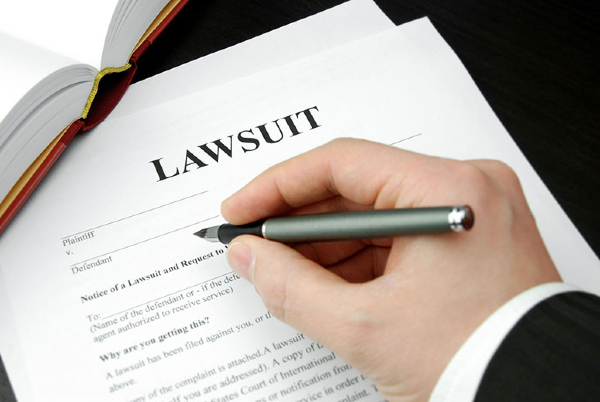As popular as high-rise living is right now, many Malaysians still have some wariness when it comes to buying strata-titled properties.
Imagine this – you’ve just moved into a seemingly perfect condo. A couple of months in, the lifts begin to break down, deep cracks appear out of nowhere on the building’s exterior, and the water supply is always filthy.
Together with the condo management, you pursue these issues endlessly with the developer, but there’s seemingly no solution available. Can the Management Corporation (MC) do anything about it?
Need a refresher on the differences between the MC, Sub-MC, and the Joint Management Body (JMB)? Read more here: What Does A Property’s JMB, MC And Sub-MC Do?
Can The Management Corporation (MC) Sue The Property Developer?
For starters, individual homeowners can pursue civil action against their developer, via the Strata Management Tribunal (SMT).
However, the SMT only covers individual claims up to RM250,000. In fact, most SMT cases are related to the collection of condo maintenance fees (unsurprisingly).
So, what about larger cases? Can the residents collectively sue the developer, via their Management Corporation (MC)?
To oversimplify the answer to the above, yes they can. But it depends on what those defects are, of which there are two types:
1) If the defects involve individual units only
The respective homeowner can pursue civil action individually but not through the MC. This is because the Sale and Purchase Agreement (SPA) is between the developer and the individual homeowner, not with the MC.
2) If the defects involve common property
The MC may bring an action against the developer. This is because the MC is technically the owner of the development’s common property as provided in Section 17B(1) of the Strata Titles (Amendment) Act 2016:
"Ownership of common property and custody of issue document of title.17B. (1) The management corporation shall become the proprietor of the common property and the custodian of the issue document of title of the lot."
And if the developer was unscrupulous enough to illegally channel monies out of the MC’s maintenance account or sinking funds? That’s right, the residents can also sue the developer via the MC!
On What Grounds Can The Management Corporation Sue The Developer?
This question was brought to light thanks to a landmark case ‘Dua Residency Management Corporation v Edisi Utama Sdn Bhd’, where Dua Residency’s MC sued the developer for latent damages.
PropertyGuru Tip
The term ‘latent damages’ refers to a fault that exists in the property, where a reasonably thorough inspection (before its completion and/or upon sale of the property) did not turn up. It’s also commonly known as a ‘hidden defect’.
In the case of Dua Residency Management Corporation v Edisi Utama Sdn Bhd, the MC pleaded three causes of action, but only one was successful. Let’s take a look at them:
1) Breach of contract
Since the SPA is between the developer and individual homeowners (and not the MC itself), the court stated that there exists no contractual obligation between the developer and the MC.
2) Breach of statutory duties under the Uniform Building By-Laws 1974
The Uniform Building By-Laws (UBBL) 1984 are a set of by-laws which stipulate street, drainage, and building requirements.
In this case, the court ruled that the UBBL is enforced by local authorities, hence the developer owed no statutory duties to the MC.
3) Breach of duty of care
The developer was, however, found liable for negligence (read: carelessness!). The court found the developer negligent in ensuring proper construction and good workmanship of the property.
What You Need To Know About Your Developer’s Duty Of Care
In the case above, the court determined that the developer owed a duty of care to the Management Corporation to ensure proper construction and workmanship of the property, allowing the MC to sue for the latent defects found.
So, what exactly would be considered a latent defect? Say, deep cracks begin to appear throughout the property after your Defect Liability Period (DLP) has already ended – cracks which weren’t there during a thorough inspection.
Issues such as these can be classified as latent defects, or in other words – defects which aren’t easily detected during inspections and only rear their ugly heads later on.
Claiming Against Latent Defects? Make Sure You’re Not Past The Deadline!
With that said, can the MC still pursue civil action against the developer if they only found the defects, say, six years after they’ve occurred?
Well, thanks to the recently-introduced Section 6A in the Limitation Act 1953, they can! An action can now be brought against the developer within three years from the date of discovering the defect.
Note that no claims can be brought against damages more than 15 years old. Here’s an example to help illustrate this timeline:
“In 2005, Condo A’s MC discovered multiple defects in the building’s lobby and facilities. A building report made by a consultant revealed that the defects had occurred in 2000, five years before. Condo A’s MC now has three years from 2005 to file civil action against the developer.”
What Does This Mean For Homeowners?
Since the MC is essentially representing all homeowners of the property, a general meeting has to be held first, where a vote is taken. If the majority wins, the MC can go ahead and pursue legal action.
Of course, a few important questions will come up. Where is the money coming from? How about the minority who would rather not pursue legal action – do they have to fork out the money too?
Under Act 757 of the Strata Management Act 2013, the funds to pursue civil action will be taken from the maintenance account. As the MC works on a majority basis, the minority who voted not to sue will unfortunately not have a say.
Choose A Credible And Trustworthy Property Developer
It’s not uncommon for individual homeowners to pursue civil action against property developers. When it comes to the MC taking up the legal issue on the other hand, things can get a little more complicated.
If anything, this issue certainly emphasises how crucial it is for homebuyers to not only choose a reputable developer they can trust, but also know their rights as a homeowner – even more so for strata property homeowners!
Relevant Guides:
Disclaimer: The information is provided for general information only. PropertyGuru International (Malaysia) Sdn Bhd makes no representations or warranties in relation to the information, including but not limited to any representation or warranty as to the fitness for any particular purpose of the information to the fullest extent permitted by law. While every effort has been made to ensure that the information provided in this article is accurate, reliable, and complete as of the time of writing, the information provided in this article should not be relied upon to make any financial, investment, real estate or legal decisions. Additionally, the information should not substitute advice from a trained professional who can take into account your personal facts and circumstances, and we accept no liability if you use the information to form decisions.






